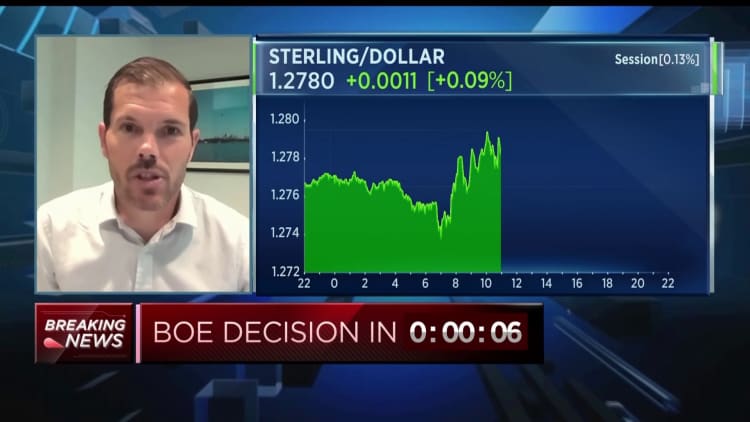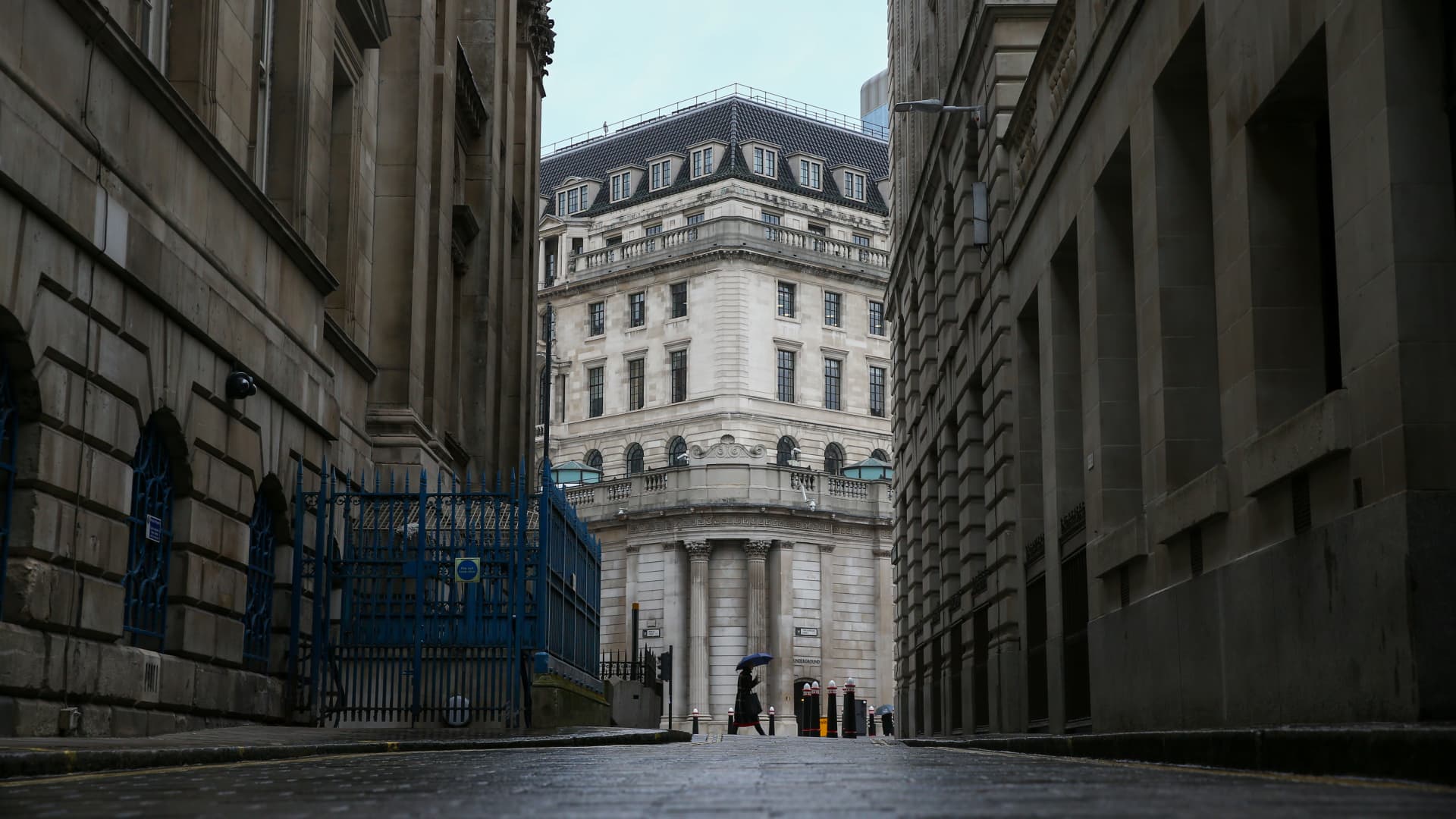A passageway near the Bank of England (BOE) in the City of London, U.K., on Thursday, March 18, 2021.
Hollie Adams | Bloomberg | Getty Images
LONDON — In a surprise move, the Bank of England (BOE) raised interest rates by 50 basis points on Thursday, marking its 13th consecutive increase as policymakers tackle persistent high inflation.
The decision, supported by a 7-2 vote from the Monetary Policy Committee, brings the bank’s base rate to 5%. This move defied market expectations, which had anticipated a 25 basis point increase with a probability of around 60%.
Following the announcement, the pound slipped against the dollar and U.K. government bond yields, known as gilts, also experienced a slight retreat. The 10-year gilt yield was down by approximately 4 basis points. It’s important to note that bond yields and prices have an inverse relationship.
Recent data revealed that annual U.K. consumer price inflation stood at 8.7% in May, unchanged from the previous month. This solidified expectations in the market that the MPC would pursue another rate hike. Economists further increased their expectations for future monetary tightening.

Of particular concern to the central bank is core inflation, which excludes volatile energy, food, alcohol, and tobacco prices. It reached 7.1% year on year in May, up from 6.8% in April, marking its highest level since March 1992.
The MPC stated in its summary on Thursday, “There has been significant upside news in recent data that indicates more persistence in the inflation process, against the background of a tight labor market and continued resilience in demand. The MPC will closely monitor indications of persistent inflationary pressures in the overall economy, including labor market conditions, wage growth, and services price inflation. If there is evidence of more persistent pressures, further monetary policy tightening will be necessary.”
Policymakers face the delicate task of tightening monetary policy enough to curb inflation without triggering a severe mortgage crisis and recession.
The MPC acknowledged that the full impact of the increase in the bank rate will take time to be felt due to the large number of fixed-rate mortgages in the market.
Since the end of 2021, the bank has raised its main rate from 0.1% to 5%.
In a statement, Bank of England Governor Andrew Bailey commented, “The economy is performing better than expected, but inflation remains too high and needs to be addressed. We understand that many individuals with mortgages or loans may be concerned about the implications. However, not raising rates now could result in greater consequences down the line.”
A ‘hawkish super-hike’
Although the market had anticipated a larger increase, several analysts believe that the majority voting in favor of the hike indicates a sense of urgency among MPC members.
Joseph Little, global chief strategist at HSBC Asset Management, referred to the move as a “hawkish super-hike” that comes at a crucial moment for the economy. It signals policymakers’ determination to stay ahead of potential issues.
“The U.K. finds itself in a challenging position compared to other major advanced economies. Rising energy and food prices have exacerbated a cost of living crisis, which has been amplified by structural labor shortages and is now translating into increasing wages,” said Little.
“Inflationary pressures in the U.K. show more persistence and momentum compared to other advanced economies, which places the Bank in a hawkish position. Today’s statement has raised concerns of a potentially higher terminal policy rate, possibly reaching 6%,” cautioned an analyst.
While all developed economies have faced similar post-pandemic inflationary pressures, the U.K.’s headline inflation is decelerating at a slower pace, and its core inflation component is significantly higher than that of other G10 nations, and it continues to rise.
Regarding the MPC’s decision, Huw Davies, an investment manager at Jupiter Asset Management, stated, “It is an implicit acknowledgment that the MPC has been lagging in its approach to hiking rates. This rate increase is an attempt to regain control and restore its credibility. The main issue is that real interest rates in the U.K. have consistently remained negative despite the tightening cycle. It seems that the BOE will need to inflict more hardship on U.K. households to achieve a controlled level of inflation more aligned with its target.”
Denial of responsibility! VigourTimes is an automatic aggregator of Global media. In each content, the hyperlink to the primary source is specified. All trademarks belong to their rightful owners, and all materials to their authors. For any complaint, please reach us at – [email protected]. We will take necessary action within 24 hours.


